E. David de Leon
2022 by InterVarsity Christian Fellowship/USA and Linson T. Daniel
All rights reserved. No part of this book may be reproduced in any form without written permission from InterVarsity Press.
InterVarsity Press is the publishing division of InterVarsity Christian Fellowship/USA.
For more information, visit intervarsity.org.
All Scripture quotations, unless otherwise indicated, are taken from The Holy Bible, New International Version, NIV. Copyright 1973, 1978, 1984, 2011 by Biblica, Inc. Used by permission of Zondervan. All rights reserved worldwide. www.zondervan.com. The NIV and New International Version are trademarks registered in the United States Patent and Trademark Office by Biblica, Inc.
While any stories in this book are true, some names and identifying information may have been changed to protect the privacy of individuals.
The publisher cannot verify the accuracy or functionality of website URLs used in this book beyond the date of publication.
Introduction
Sabrina S. Chan
A S A COLLEGE STUDENT at a Christian conference, I picked up a new book called Following Jesus Without Dishonoring Your Parents. In baggy jean shorts and an oversized T-shirt, I read a few chapters while sitting on the floor next to the book table, not yet wanting to commit my few dollars to the purchase. But reading it, I felt seen; I didnt connect with everything, but I connected with many things. So I bought the book and referred to it often as I finished college and started an engineering jobnavigating career, calling, and my relationship with my parents. Reading the book helped me name and process my experiences around identity.
Its been over twenty years since then, and Asian America has continued to grow and change. We were the fastest growing racial group between 2000 and 2019, growing by 81 percent, and in sheer numbers going from 10.5 million to 18.9 million. We continue to grow in generations here, in ethnic and religious diversity, and in our influence.
So as I started in my role as national director for Asian American Ministries, I gathered a team of experienced InterVarsity staff to write for this generation of Asian American Christians. InterVarsity ministers on college and university campuses, establishing and advancing witnessing communities of students and faculty. Each of us has had the joy of serving Asian Americans who are discerning how to follow Jesus in their college contexts and as they move on to the next invitation from God after college.
Collectively, weve worked with many different types of student fellowships and conferencesAsian American, Pilipino American, South Asian American, Southeast Asian American, Hmong American, Chinese American, Indian American, Mixed (multiracial), and also with white students, multiethnic fellowships and conferences, and Latino and Black ministries.
While the term AAPI (Asian American Pacific Islander) has grown in usage, here we use Asian American because we value our Pacific Islander and Pasifika siblings and know that we dont have the experience to write for them.
We write from our particular Asian American experiences and, from that, we welcome all of you. All of us are second-generation (that is, children of immigrants or refugees) and grew up churched. While we cant address everything, we welcome and acknowledge the full and diverse expanse of Asian American Christian experiences: migration stories (immigrant, refugee, adoptee, third-culture kid, etc.), time in the US (from very recent to many generations), race and ethnicity (mixed race, monoracial, mixed Asian ethnicities), ability, gender identity, sexual orientation, religious and socioeconomic background, and more.
In the first section we discuss how our names, history, and racialization affect us. The second part focuses on relationshipswith parents, singleness and dating, gender, and religious diversity. We close with our vocations, churches, and leadership in the world. Each chapter can be read individually, but the first part builds a foundation for how we locate ourselves as Asian American Christians.
We share our own and our communities stories, but we will also by necessity speak in some generalities. We do this not to erase our particular stories, but to articulate what we can about Asian American contexts. And were a diverse group; we dont agree on everything.
Discernment
Christians throughout the centuries have lived into the question of how to faithfully follow Jesus in their contexts. People groups across generations and cultures have long had to discern how to live through Scripture, prayer, community, and their contexts. To do this well, we need to know God and also know ourselves. Discernment is more of an art than a science but key principles include the following:
. Looking at Scripture. What was God saying to the people of that time? What can we see God saying to us in our context around this topic? (This requires understanding our contextour cultures, families, and our time.)
. Seeking out wise counsel from mentors, trusted friends, and family.
. Praying and listening to the Lord alongside Christian community.
. Choosing and trying out the path youre discerning. Debriefing and evaluating. Adjusting and discerning again. God is gracious and the Good Shepherd.
There are many topics that do not have direct scriptural commands related to themfor example, dating in our context would be totally foreign to the ancient Near East, thus the importance of knowing our contexts, ourselves, and growing in our relationship with God in community. There are many sources for learning more about discernment, including Gordon Smiths Listening to God in Times of Choice and Elizabeth Lieberts The Way of Discernment.
This book is an outworking of our experiences personally and as ministers among Asian American students and communities; it is another voice you can consider for discerning what it means to be a faithful follower of Jesus as an Asian American. Think of it as wise counsel from mentors at a distanceisnt that what books usually are? If we were in person with you to talk about these topics, we would ask you to share more about your contextpreferably over some good food. Your responses would probably elicit more questions from us, and wed want to pray with and for you. So while we cant cover every topic, situation, or nuance, youll read here stories of discernment in Asian American contexts.
Recovering Our Names
I vividly remember my white kindergarten teacher mispronouncing my name (Szying) at our graduation ceremony. Sabrina Zing Chan, she said. I couldnt explain that my parents had transliterated the Mandarin pronunciation Sz Ying for official documents, while at home I was actually known as

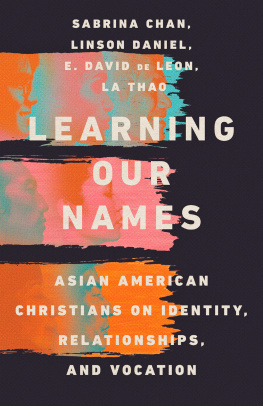

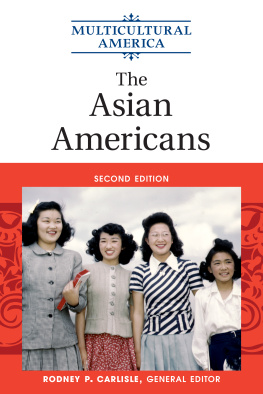
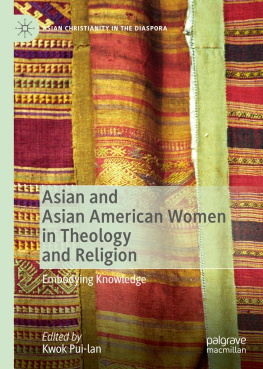
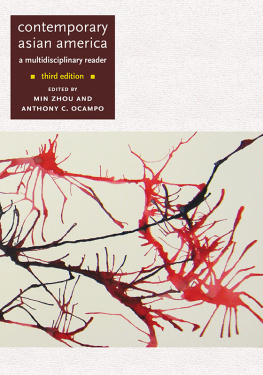
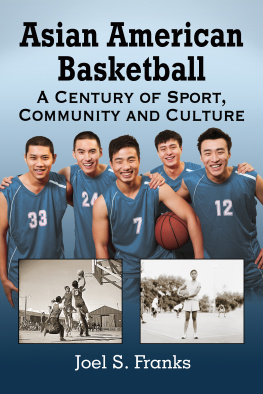
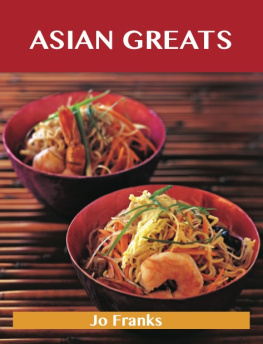
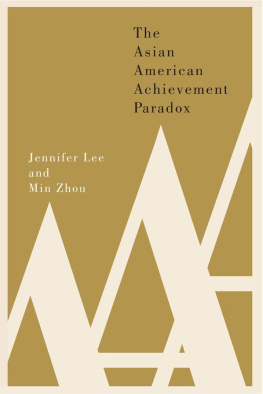
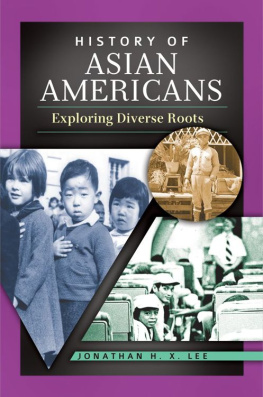
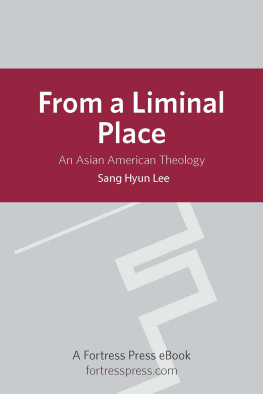
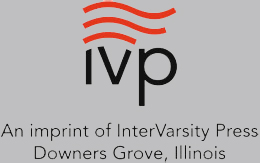
 InterVarsity Press
InterVarsity Press